Climate Change Adaptation, Resilience : Stakeholders Mull Enhanced Renewable Energy Access
- Par Kimeng Hilton
- 15 Jun 2024 17:07
- 0 Likes
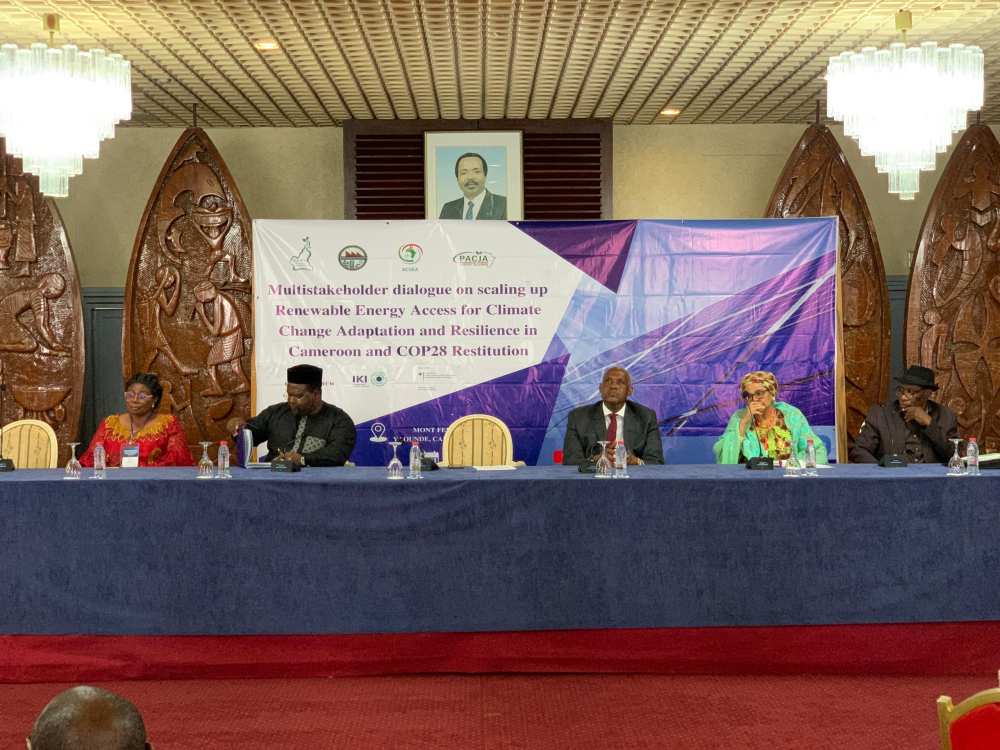
A one-day policy dialogue held in Yaounde on June 14, 2024, organised by the Pan-African Climate Justice Alliance, PACJA.
Cameroon aims to become an emerging economy by 2035. This requires reliable and affordable energy supply to support the country’s economic growth and social development. By taking advantage of its abundant renewable energy resources like hydropower, solar, wind and biomass, that can help to offset flow deficit.
Little Access To Electricity
According to the Africa Development Bank, only 18 percent of Cameroon’s population had access to electricity in 2013. And 60 percent of the installed capacity was based on hydropower, which is vulnerable to seasonal variations and climate change impacts; though largely underexploited. It was for this reason that the Pan-African Climate Justice Alliance, PACJA, African Coalition for Sustainable Development and Access, ACSEA, the Cameroon government and other stakeholders on Friday, June 14, 2024 held a one-day policy dialogue in Yaounde. With the theme, “Multi-stakeholder Dialogue on Scaling up Renewable Energy Access for Climate Change Adaptation and Resilience in Cameroon and COP28 Restitution.”
All Stakeholders Needed On Board
“We needed all stakeholders on the table to discuss access to energy and building resilience and the adaptive capacity of Cameroonians to the impacts of climate change. It is wrong to think that energy access or renewable energy is just for mitigating climate change. Because of the importance of renewable energy, we have to build resilience, the economy and enhance development. Thus the need to have all stakeholders on the discussion table,” said Dr Augustine Bantar Njamnshi, PACJA Chair of Technical and Political Affairs.
Need For Regular Dialogues
“It is important to hold such dialogues regularly so that everybody is on board when we discuss development in the very difficult climate change context. The entire country benefits by holding regular climate change policy dialogues and gaining understanding on where we are heading to in the face of the climate crisis and energy access,” Dr Njamnshi underscored.
We Must Adapt!
"The dialogue was meant to raise awareness and concluded with a policy brief which will be submitted to parliamentarians and policy makers for Cameroon to integrate the importance of access to energy for development in a constrained climate context. Climate action includes mitigation and adaptation. We do not have the luxury of choosing if to adapt or not,” Njamnshi stressed.
“When climate change impacts happen, we must adapt. But how can we adapt without access to efficient, affordable energy that meets the needs of our people? Including people in remote villages that suffer from droughts, floods? They cannot cope with climate change without access to energy. That is why we created the nexus between access to efficient, affordable energy and climate change resilience and building adaptation,” Dr Augustine Bantar Njamnshi pointed out.
Climate Change Is Reality
According to Prof. Paul Tchawa, the Secretary General in the Ministry of Environment and Nature Protection, it was important to mobilise stakeholders for the high-level dialogue on greater access to renewable energy sources. “Climate change is reality, a developing country like Cameroon pays a heavy price because our ecosystems only absorb a very limited quantity of greenhouse gases - just about 4 per cent. We do not contribute much to pollution, yet we continue to face serious challenges,” Prof. Tchawa regretted.
Abandoning Fossil Fuels Without Compromising Development
“One of the actions to be taken is gradually abandoning fossil energy without compromising our development. The National Development Strategy 2030 also mentions resort to renewable energy. With which Cameroon is highly endowed like wind, solar, biomass …… The objective is to assure Cameroon’s development while aiming for clean energy sources to curb gas emissions. We need to ensure that stakeholders are on the same wave length, the legal and institutional framework is appropriated and there is common understanding of a realistic roadmap. That is why PACJA mobilised stakeholders for the policy dialogue,” Prof. Tchawa explained.
Policy Brief For Advocacy
“On behalf of the Minister of Environment and Nature Protection, I humbly suggested that apart from the multi-stakeholders’ dialogue, PACJA should move on and produce a policy brief by involving other experts and stakeholders to come up with a clear, summary document. Which will be submitted to Members of Parliament and Senators for use in their discussions with government. Fortunately, Cameroon has given its word to review its commitment to the Paris Agreement. I believe finance challenges will be met once development partners see the coherence, commitment and consensus on the vision,” the Secretary General said.
Possible State Finance
“At first, solar panels as a source of energy in Cameroon were considered too expensive. But with time, they have become more popular and the cost has reduced. I believe we need to trust the creative and inventive capacity of young students in our universities and research institutions. No one obliges us to make use only of foreign innovation. I think our goal is achievable, given that the priorities are contained in the National Development Strategy 2030. What is left is greater mobilisation on a consensual basis. Once this is in place, the State will look for finance to put it into effect,” Prof. Tchawa pledged.
Objectives Of The Dialogue
The multi-stakeholders’ policy dialogue aimed to bring together relevant stakeholders from the government, private sector, civil society, development partners and academia to discuss the opportunities and barriers to increasing the share of renewable energy in Cameroon's energy mix and to identify concrete actions and recommendations for achieving this goal. The dialogue included a report on the outcomes of the Conference of Parties of the United Nations Framework Convention on Climate Change, COP28, proving insights into global climate action. The policy dialogue was organized as part of the project, “Ensuring a people-...
Cet article complet est réservé aux abonnés
Déjà abonné ? Identifiez-vous >
Accédez en illimité à Cameroon Tribune Digital à partir de 26250 FCFA
Je M'abonne1 minute suffit pour vous abonner à Cameroon Tribune Digital !
- Votre numéro spécial cameroon-tribune en version numérique
- Des encarts
- Des appels d'offres exclusives
- D'avant-première (accès 24h avant la publication)
- Des éditions consultables sur tous supports (smartphone, tablettes, PC)






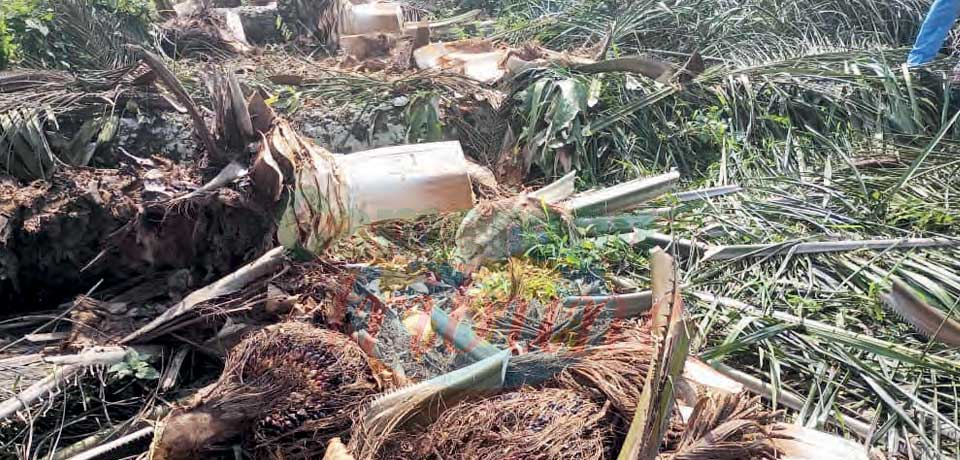
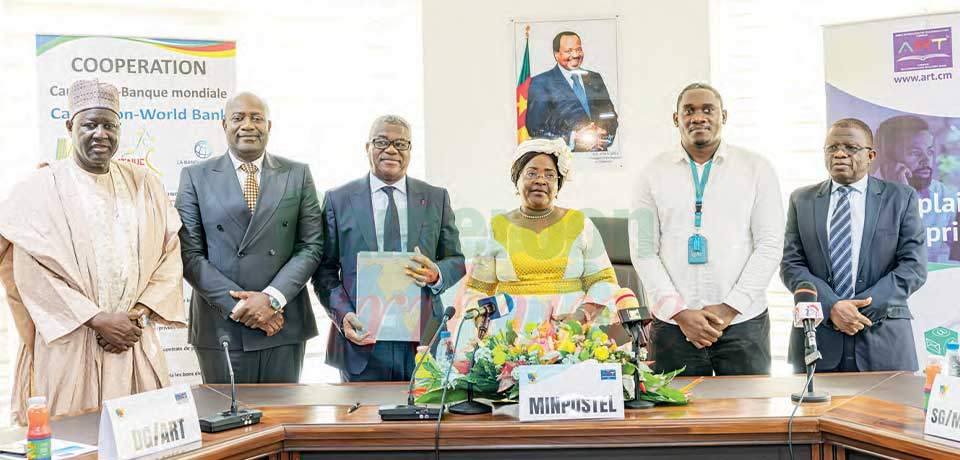
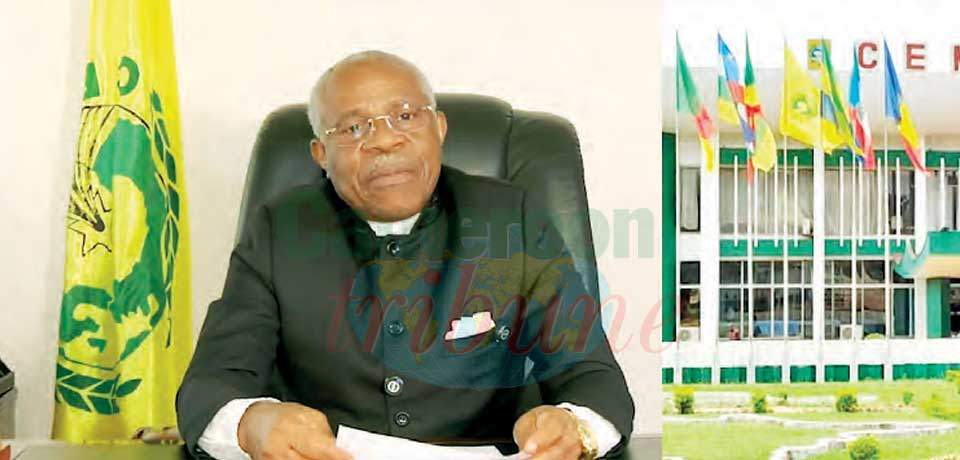
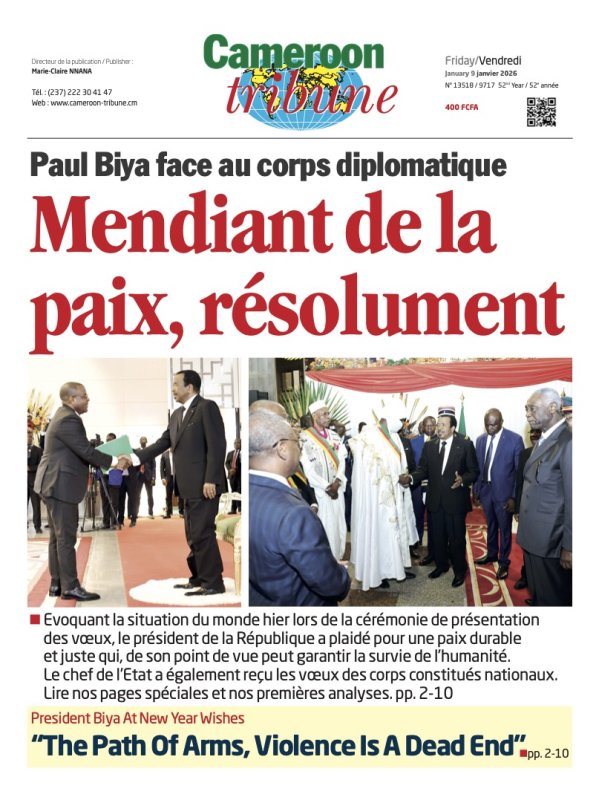




Commentaires